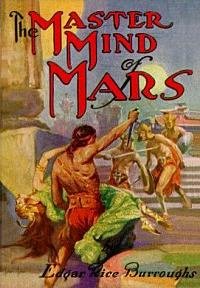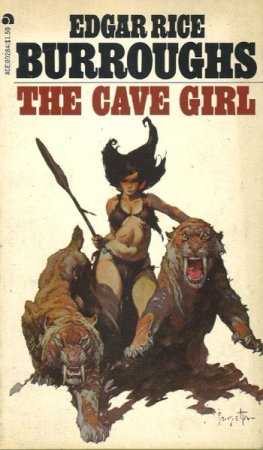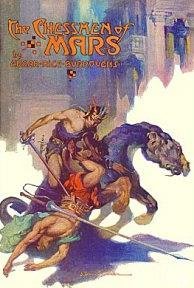Edgar Burroughs - The son of Tarzan
Here you can read online Edgar Burroughs - The son of Tarzan full text of the book (entire story) in english for free. Download pdf and epub, get meaning, cover and reviews about this ebook. genre: Adventure. Description of the work, (preface) as well as reviews are available. Best literature library LitArk.com created for fans of good reading and offers a wide selection of genres:
Romance novel
Science fiction
Adventure
Detective
Science
History
Home and family
Prose
Art
Politics
Computer
Non-fiction
Religion
Business
Children
Humor
Choose a favorite category and find really read worthwhile books. Enjoy immersion in the world of imagination, feel the emotions of the characters or learn something new for yourself, make an fascinating discovery.

- Book:The son of Tarzan
- Author:
- Genre:
- Rating:4 / 5
- Favourites:Add to favourites
- Your mark:
- 80
- 1
- 2
- 3
- 4
- 5
The son of Tarzan: summary, description and annotation
We offer to read an annotation, description, summary or preface (depends on what the author of the book "The son of Tarzan" wrote himself). If you haven't found the necessary information about the book — write in the comments, we will try to find it.
The son of Tarzan — read online for free the complete book (whole text) full work
Below is the text of the book, divided by pages. System saving the place of the last page read, allows you to conveniently read the book "The son of Tarzan" online for free, without having to search again every time where you left off. Put a bookmark, and you can go to the page where you finished reading at any time.
Font size:
Interval:
Bookmark:
The son of Tarzan
Edgar Rice Burroughs
To Hulbert Burroughs
Chapter 1
The long boat of the Marjorie W. was floating down the broad Ugambi with ebb tide and current. Her crew were lazily enjoying this respite from the arduous labor of rowing up stream. Three miles below them lay the Marjorie W. herself, quite ready to sail so soon as they should have clambered aboard and swung the long boat to its davits. Presently the attention of every man was drawn from his dreaming or his gossiping to the northern bank of the river. There, screaming at them in a cracked falsetto and with skinny arms outstretched, stood a strange apparition of a man.
Wot the 'ell? ejaculated one of the crew.
A white man! muttered the mate, and then: Man the oars, boys, and we'll just pull over an' see what he wants.
When they came close to the shore they saw an emaciated creature with scant white locks tangled and matted. The thin, bent body was naked but for a loin cloth. Tears were rolling down the sunken pock-marked cheeks. The man jabbered at them in a strange tongue.
Rooshun, hazarded the mate. Savvy English? he called to the man.
He did, and in that tongue, brokenly and haltingly, as though it had been many years since he had used it, he begged them to take him with them away from this awful country. Once on board the Marjorie W. the stranger told his rescuers a pitiful tale of privation, hardships, and torture, extending over a period of ten years. How he happened to have come to Africa he did not tell them, leaving them to assume he had forgotten the incidents of his life prior to the frightful ordeals that had wrecked him mentally and physically. He did not even tell them his true name, and so they knew him only as Michael Sabrov, nor was there any resemblance between this sorry wreck and the virile, though unprincipled, Alexis Paulvitch of old.
It had been ten years since the Russian had escaped the fate of his friend, the arch-fiend Rokoff, and not once, but many times during those ten years had Paulvitch cursed the fate that had given to Nicholas Rokoff death and immunity from suffering while it had meted to him the hideous terrors of an existence infinitely worse than the death that persistently refused to claim him.
Paulvitch had taken to the jungle when he had seen the beasts of Tarzan and their savage lord swarm the deck of the Kincaid, and in his terror lest Tarzan pursue and capture him he had stumbled on deep into the jungle, only to fall at last into the hands of one of the savage cannibal tribes that had felt the weight of Rokoff's evil temper and cruel brutality. Some strange whim of the chief of this tribe saved Paulvitch from death only to plunge him into a life of misery and torture. For ten years he had been the butt of the village, beaten and stoned by the women and children, cut and slashed and disfigured by the warriors; a victim of often recurring fevers of the most malignant variety. Yet he did not die. Smallpox laid its hideous clutches upon him; leaving him unspeakably branded with its repulsive marks. Between it and the attentions of the tribe the countenance of Alexis Paulvitch was so altered that his own mother could not have recognized in the pitiful mask he called his face a single familiar feature. A few scraggly, yellow-white locks had supplanted the thick, dark hair that had covered his head. His limbs were bent and twisted, he walked with a shuffling, unsteady gait, his body doubled forward. His teeth were goneknocked out by his savage masters. Even his mentality was but a sorry mockery of what it once had been.
They took him aboard the Marjorie W., and there they fed and nursed him. He gained a little in strength; but his appearance never altered for the bettera human derelict, battered and wrecked, they had found him; a human derelict, battered and wrecked, he would remain until death claimed him. Though still in his thirties, Alexis Paulvitch could easily have passed for eighty. Inscrutable Nature had demanded of the accomplice a greater penalty than his principal had paid.
In the mind of Alexis Paulvitch there lingered no thoughts of revengeonly a dull hatred of the man whom he and Rokoff had tried to break, and failed. There was hatred, too, of the memory of Rokoff, for Rokoff had led him into the horrors he had undergone. There was hatred of the police of a score of cities from which he had had to flee. There was hatred of law, hatred of order, hatred of everything. Every moment of the man's waking life was filled with morbid thought of hatredhe had become mentally as he was physically in outward appearance, the personification of the blighting emotion of Hate. He had little or nothing to do with the men who had rescued him. He was too weak to work and too morose for company, and so they quickly left him alone to his own devices.
The Marjorie W. had been chartered by a syndicate of wealthy manufacturers, equipped with a laboratory and a staff of scientists, and sent out to search for some natural product which the manufacturers who footed the bills had been importing from South America at an enormous cost. What the product was none on board the Marjorie W. knew except the scientists, nor is it of any moment to us, other than that it led the ship to a certain island off the coast of Africa after Alexis Paulvitch had been taken aboard.
The ship lay at anchor off the coast for several weeks. The monotony of life aboard her became trying for the crew. They went often ashore, and finally Paulvitch asked to accompany themhe too was tiring of the blighting sameness of existence upon the ship.
The island was heavily timbered. Dense jungle ran down almost to the beach. The scientists were far inland, prosecuting their search for the valuable commodity that native rumor upon the mainland had led them to believe might be found here in marketable quantity. The ship's company fished, hunted, and explored. Paulvitch shuffled up and down the beach, or lay in the shade of the great trees that skirted it. One day, as the men were gathered at a little distance inspecting the body of a panther that had fallen to the gun of one of them who had been hunting inland, Paulvitch lay sleeping beneath his tree. He was awakened by the touch of a hand upon his shoulder. With a start he sat up to see a huge, anthropoid ape squatting at his side, inspecting him intently. The Russian was thoroughly frightened. He glanced toward the sailorsthey were a couple of hundred yards away. Again the ape plucked at his shoulder, jabbering plaintively. Paulvitch saw no menace in the inquiring gaze, or in the attitude of the beast. He got slowly to his feet. The ape rose at his side.
Half doubled, the man shuffled cautiously away toward the sailors. The ape moved with him, taking one of his arms. They had come almost to the little knot of men before they were seen, and by this time Paulvitch had become assured that the beast meant no harm. The animal evidently was accustomed to the association of human beings. It occurred to the Russian that the ape represented a certain considerable money value, and before they reached the sailors he had decided he should be the one to profit by it.
When the men looked up and saw the oddly paired couple shuffling toward them they were filled with amazement, and started on a run toward the two. The ape showed no sign of fear. Instead he grasped each sailor by the shoulder and peered long and earnestly into his face. Having inspected them all he returned to Paulvitch's side, disappointment written strongly upon his countenance and in his carriage.
The men were delighted with him. They gathered about, asking Paulvitch many questions, and examining his companion. The Russian told them that the ape was hisnothing further would he offerbut kept harping continually upon the same theme, The ape is mine. The ape is mine. Tiring of Paulvitch, one of the men essayed a pleasantry. Circling about behind the ape he prodded the anthropoid in the back with a pin. Like a flash the beast wheeled upon its tormentor, and, in the briefest instant of turning, the placid, friendly animal was metamorphosed to a frenzied demon of rage. The broad grin that had sat upon the sailor's face as he perpetrated his little joke froze to an expression of terror. He attempted to dodge the long arms that reached for him; but, failing, drew a long knife that hung at his belt. With a single wrench the ape tore the weapon from the man's grasp and flung it to one side, then his yellow fangs were buried in the sailor's shoulder.
Font size:
Interval:
Bookmark:
Similar books «The son of Tarzan»
Look at similar books to The son of Tarzan. We have selected literature similar in name and meaning in the hope of providing readers with more options to find new, interesting, not yet read works.
Discussion, reviews of the book The son of Tarzan and just readers' own opinions. Leave your comments, write what you think about the work, its meaning or the main characters. Specify what exactly you liked and what you didn't like, and why you think so.






